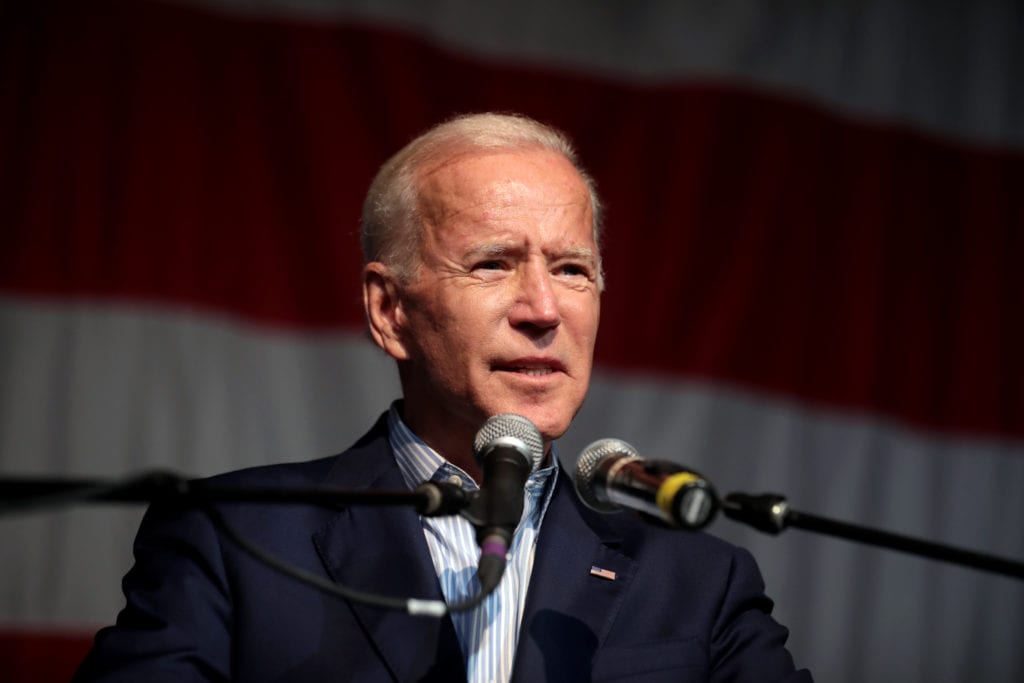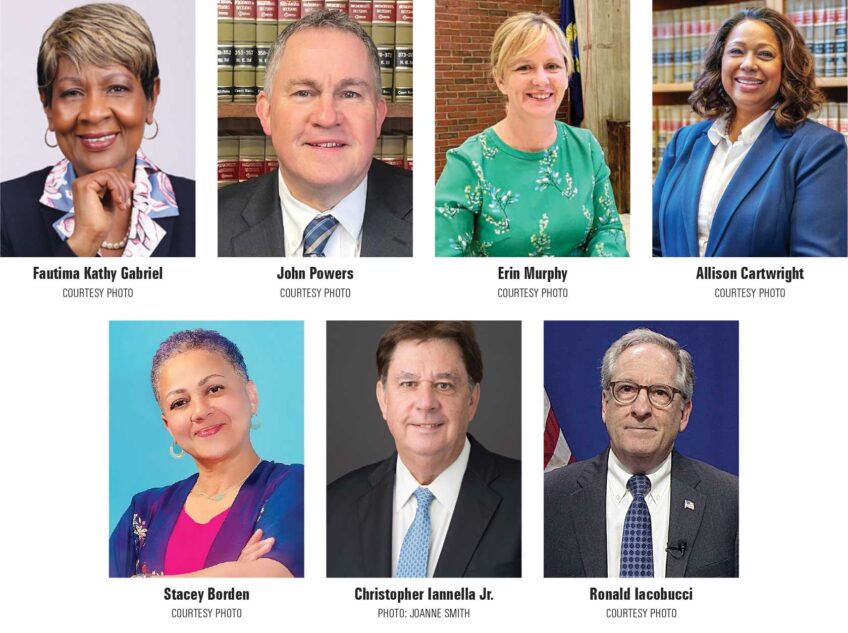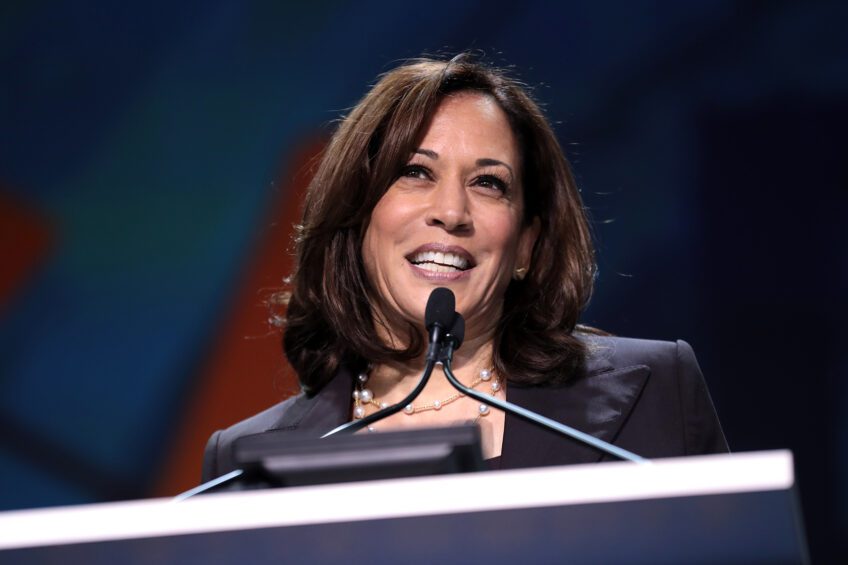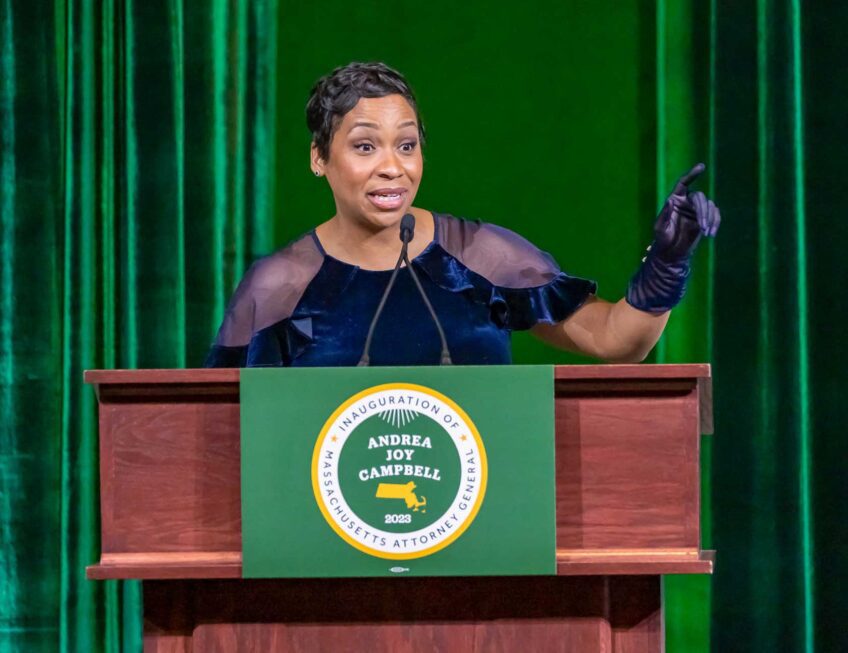Black votes matter for Joe Biden
Clyburn endorsement seen as boost to flagging campaign

Joe Biden, fueled by strong black support from Little Rock to Roxbury, came out of Super Tuesday with a delegate lead in the Democratic nomination battle for the White House while scoring an upset win in Massachusetts over Bernie Sanders and Elizabeth Warren.
Warren’s disappointing third-place finish in her home state led the Bay State senator to withdraw from the race on Thursday March 5.
The former vice president’s venue for his election night rally – a recreational center in the African American enclave of Baldwin Hills in Los Angeles – sent a clear message about who propelled Biden to winning nine of the 14 states in play on Super Tuesday. Biden’s choice of the home of former Mayor Tom Bradley, Ray Charles, Tina Turner and a host of black celebrities and athletes was the equivalent of a major Bay State candidate holding a victory celebration at the Shelburne Community Center in Malcolm X Park.
“They don’t call it Super Tuesday for nothing!” shouted Biden, whose campaign appeared on life support after trudging through defeats in Iowa, New Hampshire and Nevada. His third bid for the Oval Office was revived in South Carolina, where he won 60% of the black vote, crushed his rivals and boarded a “Joementum” freight train that roared through Tuesday’s contests.
“We were told, well, when we got to Super Tuesday I would be over. Well, it may be over for the other guy!”
“It was South Carolina that raised him from the dead,” said Democratic National Committee member Melvin Poindexter of Newton. “He was Lazarus, laid out and gone, until the laying on of hands of Congressman Clyburn just days before the primary.”
The endorsement of Biden in the Palmetto State by the dean of the Congressional Black Caucus was expected but took on added drama given the fact that no candidate has ever come back from decisive thumpings in the early voting states to win the nomination.
Over half the delegates to the Democratic National Convention have yet to be selected in a race between the fiery Democratic Socialist from the Green Mountain State and “Uncle Joe,” the genial debate-challenged former Delaware senator who never met a shoulder he didn’t like to use as a prop for his arms. The coast-to-coast contests on Super Tuesday apportioned about a third of the total delegates, with 1,991 needed to secure the nomination on the first ballot.
Biden emerged from the March 3 balloting with 566 delegates, Sanders with 501 and Elizabeth Warren with 61.
The battle for the remaining delegates will be waged over what polls show is the most important factor in deciding the contest – the ability to defeat Donald Trump. The primacy of the electability factor among Democrats explains why every candidate has touted his or her successful match-ups against the Republican incumbent.
During his own election-night rally in Essex, Vt., Sanders, who regularly cites surveys showing him beating Trump, took comfort in his big win in California and other western states. “Tonight I tell you with absolute confidence: We are going to win the Democratic nomination,” he said. Sanders ran strongly among younger voters and Latinos across the United States, including East Boston, where he swept the heavily Hispanic Ward 1 neighborhood. But many voters, especially suburban residents concerned about the ability of an independent leftist to beat Trump, swung towards Biden as Warren’s bid faded and other candidates dropped out.
After vote-counting ended in the early-morning hours of March 4, Biden had won states across the South with large African American voting populations, including Alabama, Tennessee, Virginia and North Carolina, while also taking Oklahoma, Texas and Arkansas. He won Minnesota as well after U.S. Sen. Amy Klobuchar dropped out last weekend and endorsed him. Pete Buttigeig’s withdrawal and endorsement of Biden further contributed to the consolidation of the vote.
In advance of the six-state March 10 primaries, including the major prize of Michigan, Biden received endorsements from former rivals Cory Booker and Kamala Harris. The black U.S. senators are both frequently mentioned as possible Biden running mates. Meanwhile, Sanders appeared at a Michigan rally where he received the backing of civil rights icon Jesse Jackson, whose own presidential race scored a major win there in 1988.
Sanders, who took Michigan over Hilllary Clinton in 2016, is hoping his Super Tuesday victory in the biggest state on the board, California, bodes well for upcoming contests. He also won in Colorado, Utah and his home state of Vermont. Michael Bloomberg, who enjoyed a rise in the polls after entering the race in November when Biden looked weak, dropped out of the race and endorsed fellow moderate Biden the day after Super Tuesday. The Medford-raised billionaire poll numbers slumped after his disastrous debate performances. The only return on his $500 million personal campaign investment was winning American Samoa’s six delegates and an impossible pathway to the nomination.
In Massachusetts, what was expected to be a two-way race between Sanders and Warren ended up with a Biden surge boosting him to 34% of the vote, trailed by Sanders with 27 and Warren with 21. The embarrassing defeat on her home turf led some, like Poindexter, predicting her withdrawal from the field – which came to pass two days after Super Tuesday.
“It’s just difficult after such defeats to keep your supporters motivated and keep the vision alive,” he said.
Warren, who flew to Detroit before the final votes were cast in the Golden State, affirmed her intention to stay in the race on election night but soon reversed course. At one point the front-runner in the nomination contest, she was unable to muster the same progressive energy generated by Sanders supporters and failed to galvanize black voters, who favored her main rivals by lob-sided margins.
In Boston’s predominantly black wards – Ward 12 in Roxbury and Ward 14 in Dorchester – Biden won twice as many votes as Warren but finished just a few hundred over Sanders.
Among African American voters outside Boston – which overall narrowly favored Biden – some heeded the calls of their preferred ex-candidates to cast a vote for the man who served under President Barack Obama for eight years.
“I was for Amy Klobuchar but I took her lead and voted for Biden after she dropped out,” said Donna Rigg of Newton. “He was my second choice in any case, so it’s not a reach for me to now align with him. I just hope he picks Senator Klobuchar as his VP.”
Former Boston resident Ralph Cooper, who ran the Veterans Benefits Clearinghouse in Roxbury for years, now resides in Houston, Texas, where he cast a vote for Biden, helping him to narrowly defeat Sanders there. “I looked at the realism of it,” said Cooper. “Socialism was just a killer for people in the South. We want someone who can beat Trump.”






